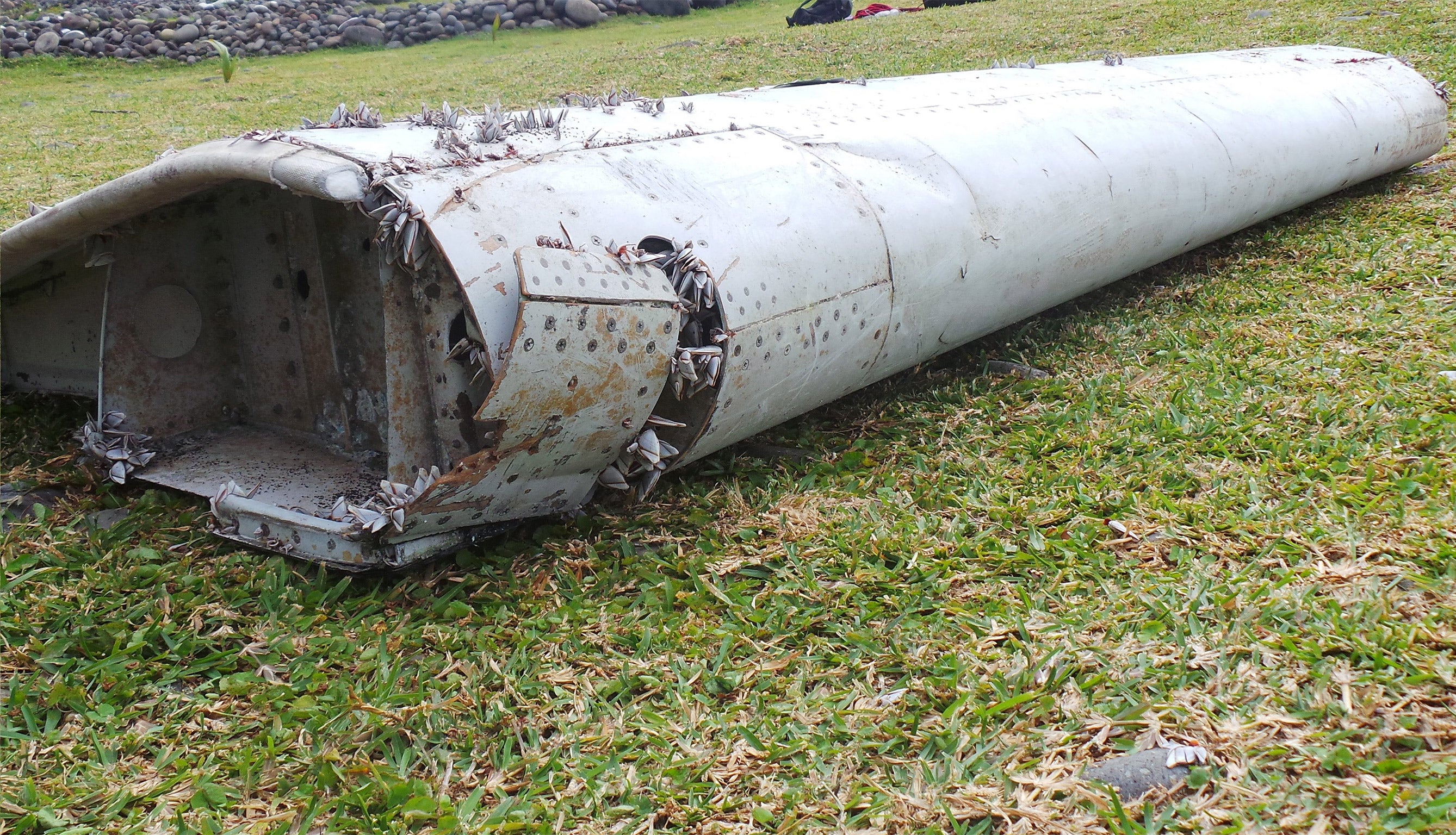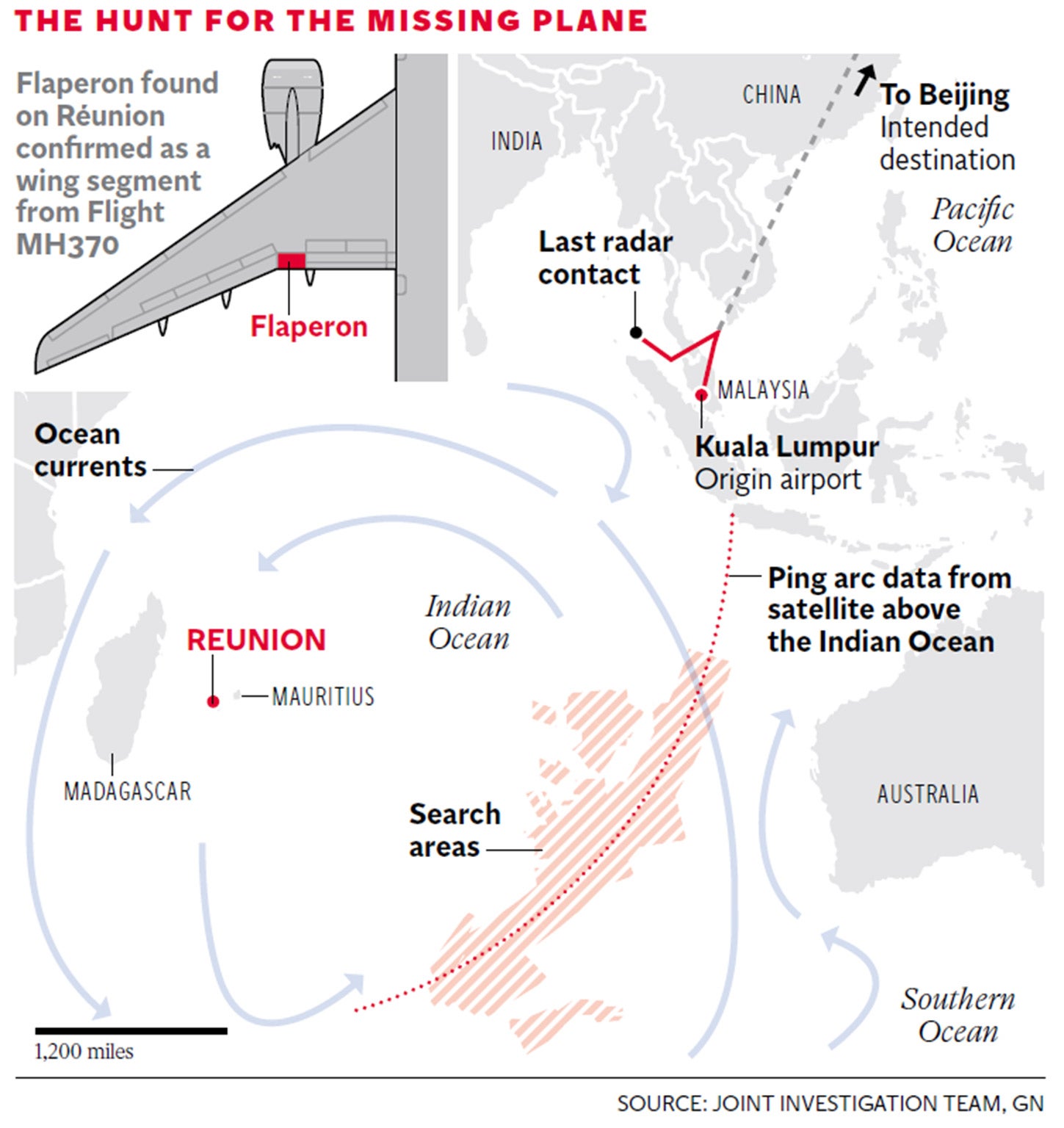MH370: Malaysian PM confirms to relatives that loved ones died in the Indian Ocean
However, how they died and where the victims are remains a mystery

Your support helps us to tell the story
From reproductive rights to climate change to Big Tech, The Independent is on the ground when the story is developing. Whether it's investigating the financials of Elon Musk's pro-Trump PAC or producing our latest documentary, 'The A Word', which shines a light on the American women fighting for reproductive rights, we know how important it is to parse out the facts from the messaging.
At such a critical moment in US history, we need reporters on the ground. Your donation allows us to keep sending journalists to speak to both sides of the story.
The Independent is trusted by Americans across the entire political spectrum. And unlike many other quality news outlets, we choose not to lock Americans out of our reporting and analysis with paywalls. We believe quality journalism should be available to everyone, paid for by those who can afford it.
Your support makes all the difference.Relatives of the 239 passengers and crew aboard the missing Malaysia Airlines flight MH370 have been told that investigators are certain their loved ones perished in the Indian Ocean. But how they died, and where they are, remains the greatest unsolved mystery in aviation.
The Boeing 777 disappeared on 8 March last year on a routine flight from Kuala Lumpur to Beijing. Despite a massive international effort, for 16 months no trace of the plane was found. But last week, a fragment of a wing was discovered on a beach on the Indian Ocean island of Reunion.

In a live television broadcast Malaysia’s Prime Minister, Najib Razak, said: “Today, 515 days after the plane disappeared, it is with a very heavy heart that I must tell you that an international team of experts have conclusively confirmed that the aircraft debris found on Reunion is indeed from MH370.”
The premier said: “The loss of MH370 marked us as a nation. The burden and uncertainty faced by the families during this time has been unspeakable. They have our deepest sympathy and prayers.”
The wing part was discovered on a beach on the east coast of the island. Reunion is part of France, and French investigators immediately took charge of the evidence. It was flown to Paris at the weekend, then driven to an aeronautical laboratory outside Toulouse. Experts at this French military facility have experience of examining debris from oceanic crashes, acquired from the analysis of Air France flight AF447, which was lost in the Atlantic in 2009.
The formal examination of the wing part began only on Wednesday afternoon. It was under the direction of a judge. Four of the passengers were French citizens, and the analysis is part of a criminal investigation into the disappearance of MH370.

Serge Mackowiak, the deputy chief prosecutor of Paris, said Boeing representatives had confirmed the flaperon was from a 777, while Malaysian Airlines officials supplied technical evidence that it was from the missing plane.
Confirmation that the debris was from the fatal flight had been widely expected because the wreckage was handled so delicately and a team of international experts summoned to France.
The finding is likely to put to rest some of the wilder theories about the fate of MH370 - such as the plane being flown, under orders of the Kremlin, to Kazakhstan. But the truth about what happened in the hours after communication ended over the South China Sea remains elusive.

The deputy prosecutor, Serge Mackowiak, said French investigators were considering terrorism as one of the causes of the disappearance of the jet.
The possibility that one of the pilots deliberately disabled communications, then flew the plane to a remote location where it crashed through lack of fuel, is another widely held theory.
The condition of the wing will give investigators clues about how the aircraft entered the water. The fact that the flaperon is largely intact has been interpreted as suggesting a human hand was at the controls when its flight ended, and undertook a low-speed ditching into the sea.
Only when, or if, the fuselage is found could the most pressing questions be answered. The “black boxes” - the flight data recorder and cockpit voice recorder - could hold significant evidence, as might human remains on the flight deck and in the cabin.
The Australian Transport Safety Board has been leading the search for MH370 in an area about 1,000 west of Australia. In a statement, the bureau said it had reviewed its search calculations and priorities and was satisfied that the discovery “is consistent with the current underwater search area in the southern Indian Ocean”.
Malaysia has alerted nations around the Indian Ocean rim to look out for other possible debris from MH370.
Join our commenting forum
Join thought-provoking conversations, follow other Independent readers and see their replies
Comments